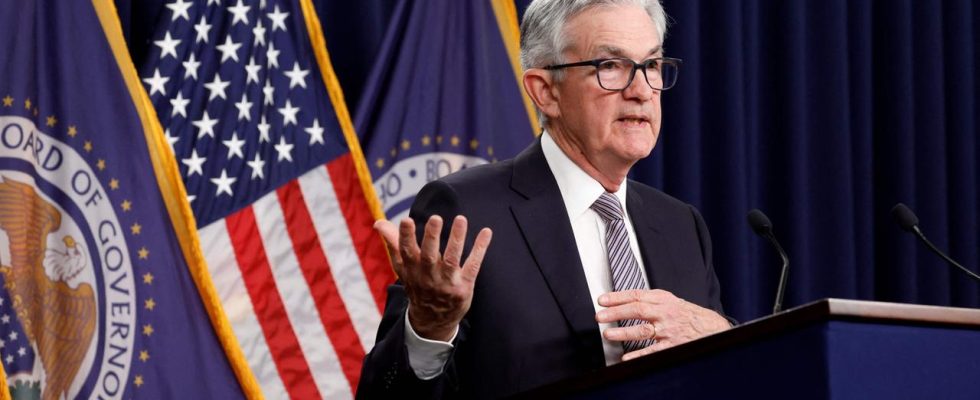The US Federal Reserve has raised interest rates again slightly – by 0.25 percentage points. There are increasing signs that it could have been the last time for the time being.
The redeeming sentence did not come. Jerome Powell, the head of the US Federal Reserve, did not want to confirm to journalists that this was the last rate hike. “No decision was made today about a break,” Powell said. But, he implied, the decision-makers felt they were nearing the end or had already arrived.
The central bankers now want to see how the economy, inflation and the financial markets are developing over the coming weeks and months. And then, based on the data, they want to determine the extent to which they counteract it. In terms of the choice of words, that sounds much more reserved than in the past few months. Powell also emphasized this.
Powell: Not expecting a rate cut
In March, inflation was 5 percent. This means that “inflation has weakened somewhat since the middle of last year”. Nevertheless, the pressure remains high and the process of bringing inflation back to 2 percent still has a long way to go. Accordingly, Powell made it clear that a rate cut is not to be expected in the near future.
The Fed has raised interest rates ten times since last summer. In some cases in large steps, it rose from almost zero to 5 to 5.25 percent, the highest interest rate since the financial crisis. The consequences are particularly noticeable in the real estate market in the USA. The Fed stated in its report that little is happening in residential construction, which is due to the high mortgage interest rates.
Interest rate moves contribute to banking crisis
The rising interest rates were also a reason for the collapse of several banks that had not secured themselves well enough. Powell expects that the crisis in the banking sector will also help bring down inflation – because it could now become more difficult to get credit. However, the extent of this effect cannot be estimated.
In the direction of politics, Powell sent a clear warning. So far, Democrats and Republicans have not managed to agree on raising the debt ceiling. The Republicans are linking their approval to calls for significant savings by the government. If talks fail, the US could default by June 1, Treasury Secretary Yellen warned earlier this week.
An agreement must be reached so that the US government can pay its bills on time, Powell also demanded. Failure would have been unprecedented and the consequences for the economy would be uncertain. And, he added, no one should assume that the Fed can protect the economy from the potential short- and long-term effects of “non-payment of our bills.”

